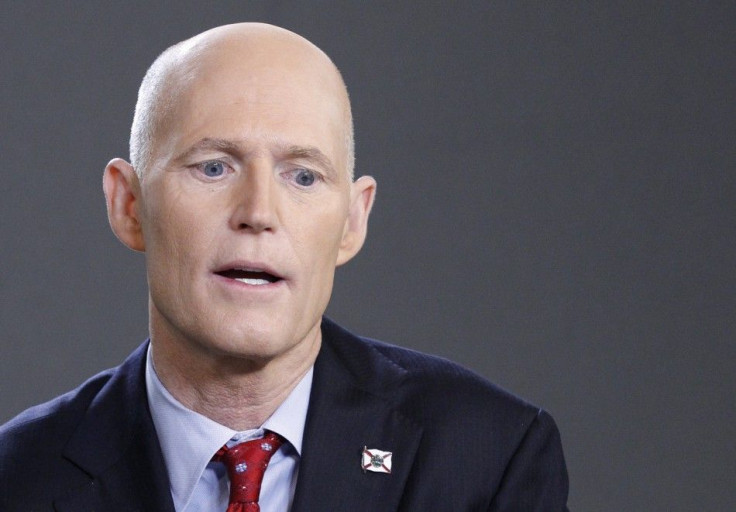Florida Shuts Down Only TB Hospital During Worst Outbreak In 20 Years

What do you do when facing the worst tuberculosis outbreak the U.S. Centers for Disease Control and Prevention has seen in 20 years? If you're Florida Gov. Rick Scott, you downsize the Department of Health and shut down the only tuberculosis hospital in the state.
Just nine days after officials moved to close A.G. Holley State Hospital in Lantana -- one of only four tuberculosis hospitals left in the country -- the CDC sent an April 5 report to Florida health officials warning that a tuberculosis outbreak in Jacksonville had been linked to 13 deaths and 99 illnesses, including six children, among the city's homeless population, according to an investigation by the Palm Beach Post.
The high number of deaths in this outbreak emphasizes the need for vigilant active case finding, improved education about TB and ongoing screening at all sites with outbreak cases, wrote Dr. Robert Luo of the CDC, who authored the report.
The hospital, which shut its doors on July 2, had been a main treatment center for tuberculosis cases for more than 60 years. Tuberculosis is a highly contagious bacterial infection that primarily occurs in the lungs, although it can spread to other organs. Contamination can occur by simply breathing in air droplets from a cough or sneeze of an infected person.
Some of the lawmakers behind the Department of Health consolidation, which included the closure of A.G. Holley State, told the Post they had not been informed of the Jacksonville outbreak before they decided to close the hospital. Republican state Rep. Matt Hudson, the chairman of the House Health Care Appropriations Committee who advocated the closure, told the newspaper he had not known about the outbreak or the CDC report but vowed the state would find some money for tuberculosis treatment.
But at least some state officials knew there was a problem. In early February, Duval County Health Department officials reportedly asked for CDC assistance because they felt so overwhelmed by the sudden spike in tuberculosis cases. But because the outbreak only affected the so-called underclass, those same officials decided to not make that information public, according to the Post, repeating a decision it had made in 2008 when the same strain of the disease began appearing in an assisted living home for people with schizophrenia.
At least 3,000 people in the last two years may have had close contact with contagious tuberculosis patients in Jacksonville's homeless shelters, jails and an outpatient mental health clinic, according to the CDC report. But as of now, only 253 of those people have been located and screened for the disease; one-third of them tested positive for exposure.
The CDC report also notes that only two-thirds of the active cases could be traced to people and locations in Jacksonville where the homeless congregate, indicating the strain has spread to the general population, the Post reports.
The press office for Florida's Department of Health has stood by the argument that the closure of A.G. Holley is irrelevant because the state's overall number of tuberculosis cases has reportedly decreased.
Florida experienced a 10 percent decrease in cases for 2011 compared to 2010. For the period 2007-2011, there was a 24 percent decrease in cases, agency spokeswoman Jessica Hammonds wrote to the Post. However, the newspaper notes that Hammonds did not say whether the agency was aware of the severity of the Jacksonville outbreak while penning that statement, when specifically asked by a reporter.
When questioned, the governor's office reportedly asked the newspaper to forward a copy of the CDC letter but did not comment on the issue.
Duval County health officials only discussed the CDC report after weeks of record requests from the Palm Beach Post, according to the newspaper. It was only released after a reporter traveled to Tallahassee to demand the report in person, even though Florida's Government in the Sunshine Act states those records should be open to public inspection to anyone upon request.
© Copyright IBTimes 2024. All rights reserved.











